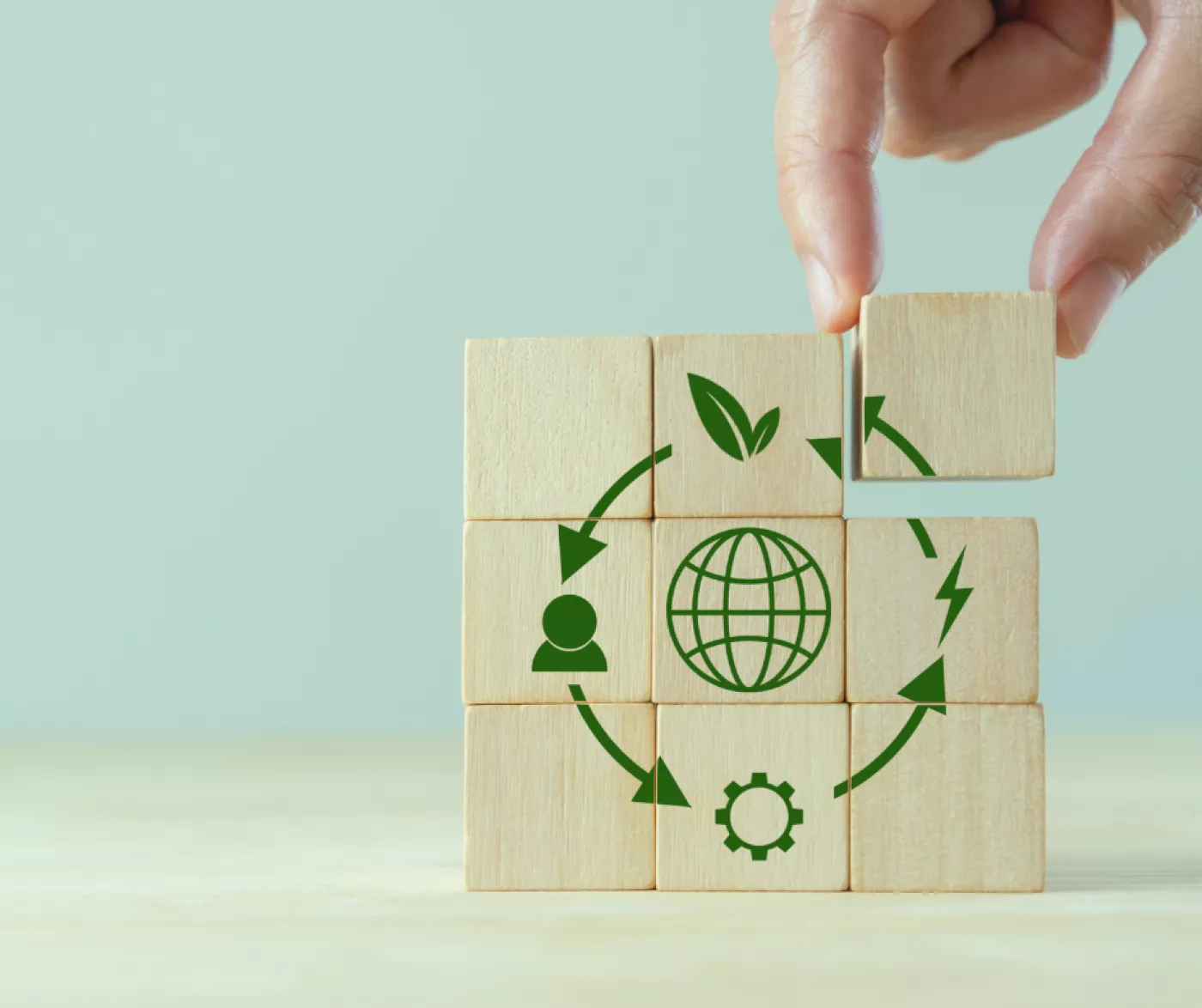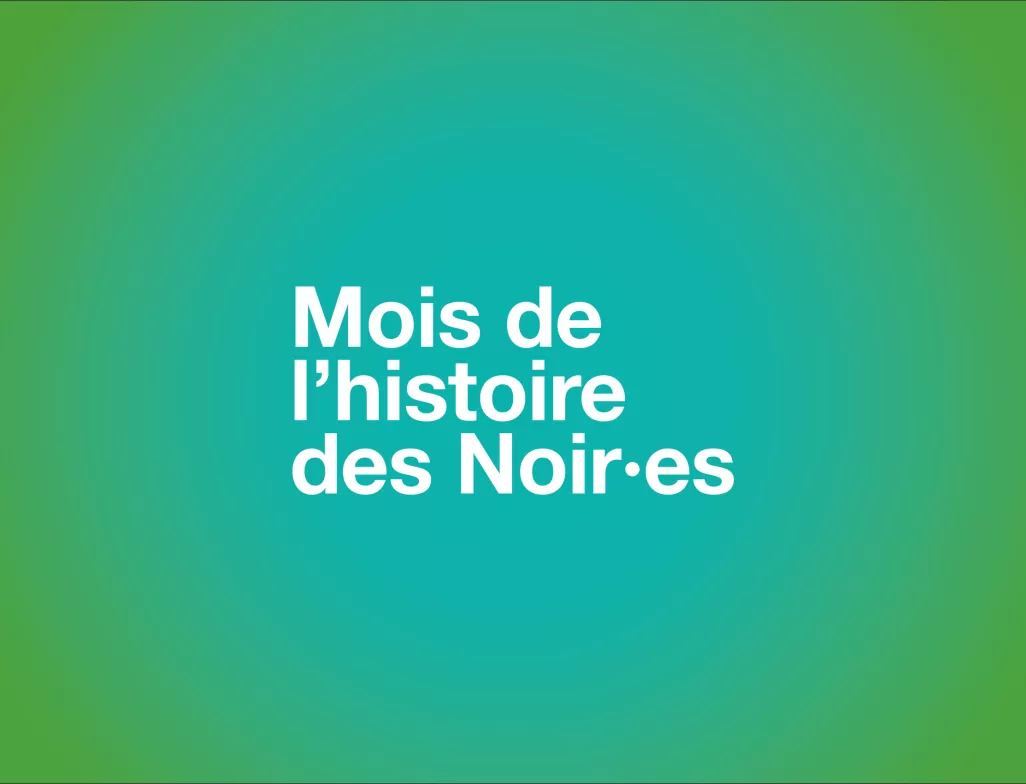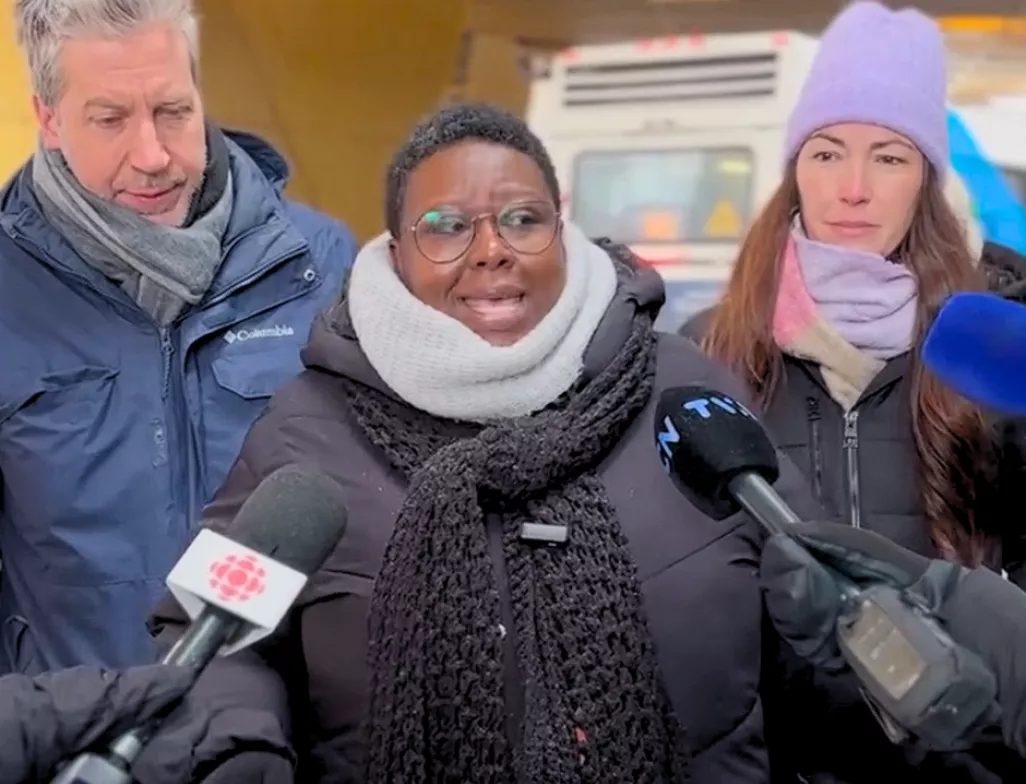The City of Montreal is today announcing a series of major initiatives designed to propel development in the east end of the city through the circular economy. Circularity is at the heart of the strategic orientations for the development of the East End of Montreal. At the Sommet de l'Est 2025, the Ville de Montréal presented several initiatives designed to transform the region through sustainable and innovative practices. These projects illustrate the City's determination to create a development model in which the circular economy plays a central role, thus fostering the resilience and prosperity of the East End of Montreal. These actions highlight the strength of the partner ecosystem and the City's vision for a sustainable future.
“Our vision is ambitious and clear: to make the East End of Montreal a model of sustainable development where every business and every initiative contributes to a circular and sustainable economy. Together with our partners, we are turning our vision into reality, and making the East End of Montreal a place where the economy and the environment go hand in hand. Montréal is and will remain at the forefront of the ecological transition, inspiring other cities to follow our example,” said Montréal Mayor Valérie Plante.
“Montreal's Circular Economy Roadmap transforms our urban resources into economic value while preserving the environment. By adopting circular practices, our businesses can optimize their operations, reduce costs and strengthen their resilience in the face of economic disruption. This strategic approach supports our economy while respecting our environmental commitments,” continued Marie-Andrée Mauger, Executive Committee member responsible for ecological transition and the environment.
“With these investments in Synergie Montréal and the Circular Space Innovation Campus, we are moving from vision to concrete action to develop the circular economy in the East. The circular economy is essential, as it enables us to create local value while reducing our environmental footprint. Our objective is clear: to double our circularity index to 6% by 2030. The 2025-2030 Action Plan, which will be unveiled at the Canadian Summit next week, will reinforce these measures to accelerate the transition of businesses,” emphasized Alia Hassan-Cournol, Associate Development Advisor on the Executive Committee.
Increased financial support for the Synergie Montréal initiative
The City of Montreal is proud to announce that it has increased its financial support for Synergie Montréal, an initiative driven by PME MTL Est-de-l'Île and supported by the city since its inception, by granting it an envelope of $900,000, or $300,000 per year for the period 2025-2027. Thanks to this funding, this essential initiative will increase its impact, so as to increase and perpetuate the positive spin-offs of its mission to support businesses in adopting circular economy strategies.
In addition to financial support, business coaching is an essential condition for transforming the economy. Synergie Montréal plays a key role in helping companies optimize the use of their resources and redefine their business models towards a circular model. In some ten years, Synergie Montréal has supported nearly 2,300 companies and raised awareness among more than 4,200.
These initiatives are crucial to accelerating the transition of Montreal's 64,000 business establishments from a linear to a circular business model. Thanks to Synergie Montréal, businesses in the East Island and Greater Montreal are better equipped to adopt sustainable practices, reduce their environmental impact and contribute to a more resilient and innovative economy.
Funding for the Circular Space Innovation Campus
The Ville de Montréal announces financial support of $600,000 over the next three years for the Circular Space Innovation Campus (CIPME) project, spearheaded by PME MTL Est-de-l'Île and supported by several partners. This project aims to accelerate the circular economy in Montreal by capitalizing on the East Island's strategic assets, notably its high concentration of innovative SMEs, the new carbon-neutral 40NetZéro campus, access to intermodal and energy infrastructures, and the presence of key institutions.
By establishing this campus in the East End, the partners aim to transform this part of the city into a center of excellence for Montreal's circular economy, focused on experimentation, innovation, collaboration and creativity. The campus will provide companies with a range of resources, including personalized coaching and new financial support mechanisms to facilitate the transition to circular business models.
Key actions for the coming years include
- creation of a Matériauthèque - Montreal's showcase for circularity;
- study leading to the establishment of a pilot plant for the circular textile industry;
- Sustainable and circular innovation development fund;
- Circulab support and acceleration program;
- collaboration within sector-based circularity networks.
Wood circularity study
The City announces its intention to finance an in-depth study on the circularity of wood, a key material for sustainable development and the circular economy. The study, which will be entrusted to a specialized firm, will explore the possibilities for optimal reclamation of recovered wood in the agglomeration, with the aim of stimulating economic growth and industrial transformation in the East End of Montreal.
Every year, the seven ecocentres and the territories of the Greater Montreal area transport over 40,000 tonnes of wood residues from various sources, in addition to construction, renovation and demolition (CRD) waste, to treatment sites. Although most of this waste is recovered, a large proportion is destined for energy recovery. The aim of the study will be to identify innovative processes to recover residual materials more efficiently and sustainably, while reducing GHG emissions. It will also analyze the municipal costs of the various recovery processes, quantify the possible local economic spin-offs in short loops and in a spirit of circularity, and examine the potential establishment of companies in the field as well as the adoption of these processes in the East.
Towards a circular and resilient economy
In a global context marked by tariff tensions and economic uncertainties, the Ville de Montréal reaffirms its commitment to economic resilience. Recent threats of U.S. tariffs on a number of manufactured and agri-food products have highlighted the need to strengthen the competitiveness and sustainability of local businesses. In response to these challenges, the circular economy is emerging as a strategic solution for limiting financial impacts and preserving jobs.
The initiatives announced demonstrate the City of Montreal's commitment to promoting sustainable development and strengthening the circular economy in the east end of the city. They are also in line with the Montreal Circular Economy Roadmap, which aims to increase the circularity index from 3% to 6% by 2030, and to 17% by 2050. By working hand in hand with its partners, Montréal is positioning itself as a leader in the development of a green, resilient and prosperous economy.
The City of Montreal's leadership in circularity has helped attract the second edition of the Canadian Circular Economy Summit, which will take place in Montreal from April 15 to 17, 2025, bringing together over 1,000 participants from here, across Canada and around the world. The first three-year Circular Economy Action Plan 2025-2027 will be unveiled.
SOURCE Ville de Montréal - Office of the Mayor and Executive Committee



